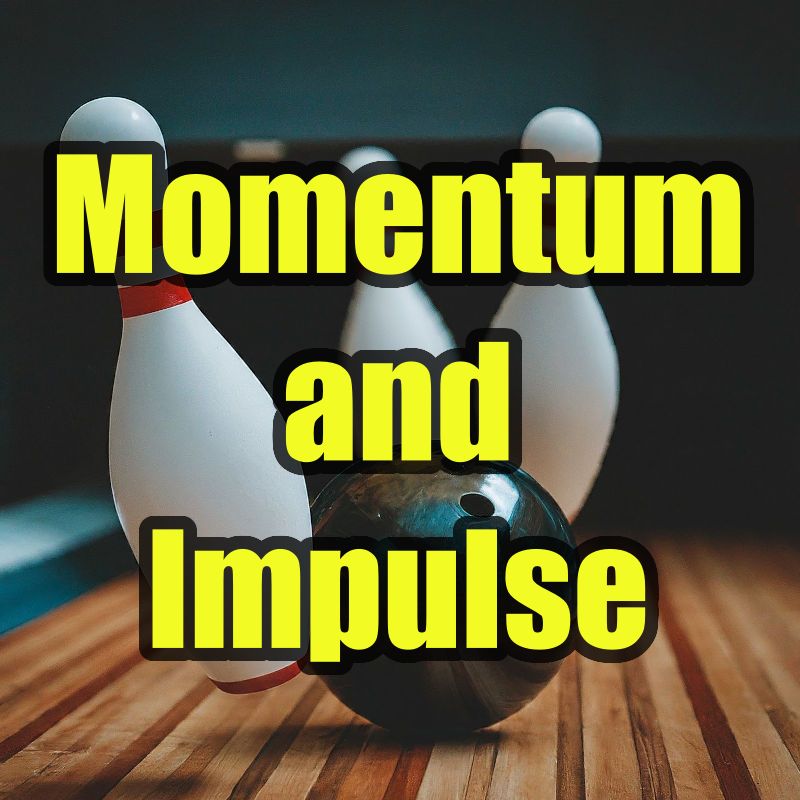In IB Physics First Assessment 2016, momentum and impulse is a subtopic of Topic 2 mechanics. This subtopic has the following understandings associated with it.
- Newton’s second law expressed in terms of rate of change of momentum
- Impulse and force–time graphs
- Conservation of linear momentum
- Elastic collisions, inelastic collisions and explosions
In this part of the analysis, I am particularly interested in “What is the frequency distribution of the questions concerning momentum and impulse understandings?”
Frequency distribution of questions by momentum and impulse understandings for HL
Between 1999-2023
For the entire dataset for HL, collisions and Newton’s second law expressed in terms of rate of change of momentum account for more than two-thirds of the questions. About one-fifth of the questions came from impulse and force-time graphs. Conservation of linear momentum accounted for about one-tenth of the questions.
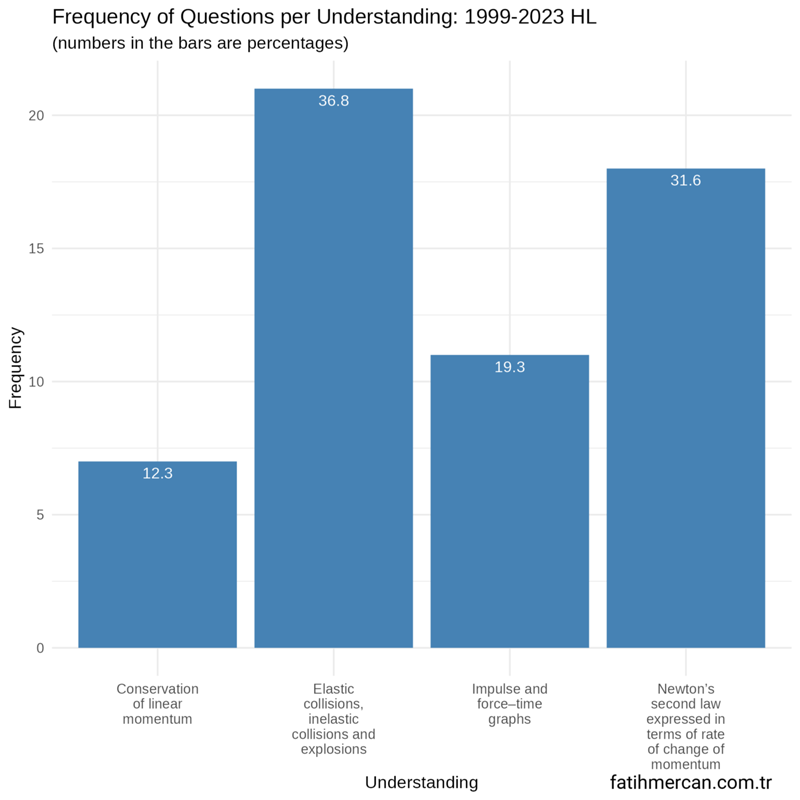
Figure 1
Between 2016-2023
Between these years, Newton’s second law was the most frequently assessed understanding. The remaining three understandings accounted for two-thirds of the questions.
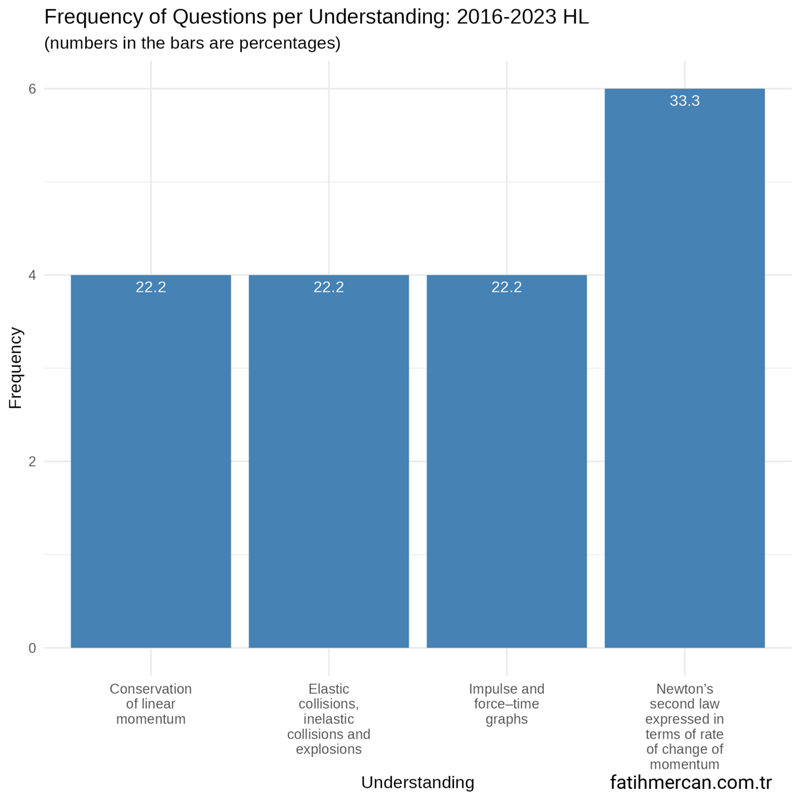
Figure 2
Frequency distribution of questions by momentum and impulse understandings for SL
Between 1999-2023
For the entire dataset for SL the distribution is similar to HL. Again, collisions and Newton’s second law were heavily assessed.
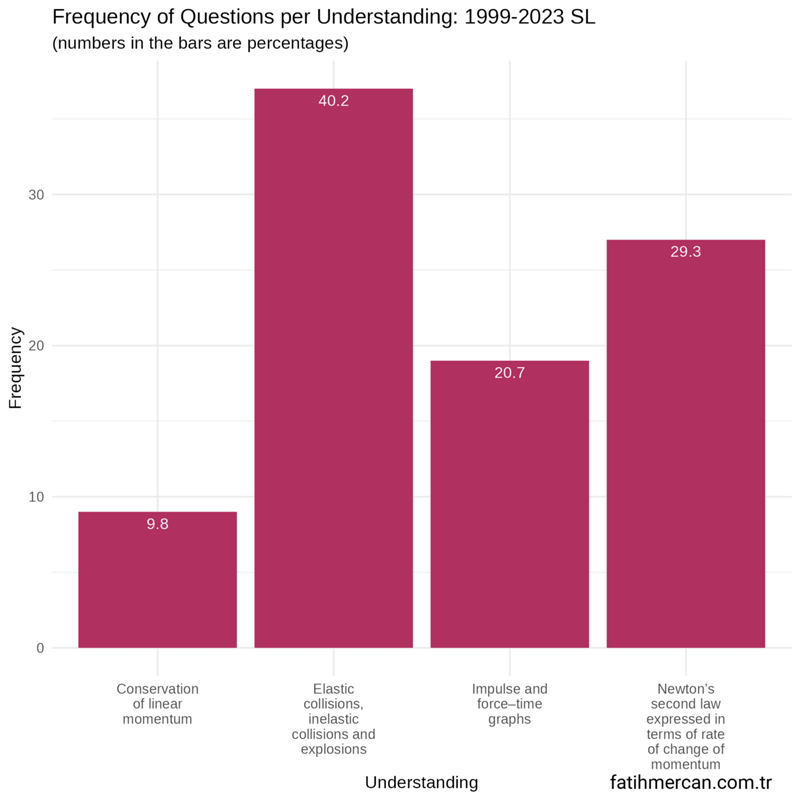
Figure 3
Between 2016-2023
Between these years, the distribution is similar to the entire dataset for SL. One difference is that besides collisions, the remaining three understandings are emphasized in similar amounts.
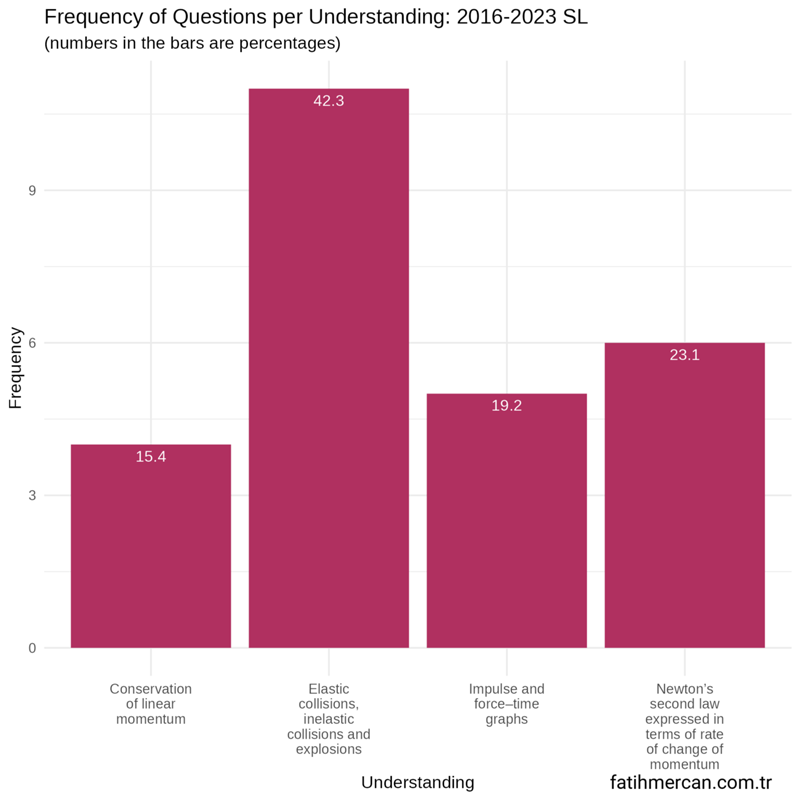
Figure 4
Where to go from here?
You may want to check out the other related subtopics:
- Motion
- Forces
- Work, energy and power
- Momentum and Impulse
If you are interested in more detailed analyses of the topics:
- Measurement and uncertainties
- Mechanics
- Thermal physics
- Waves
- Electricity and magnetism
- Circular motion and gravitation
- Atomic, nuclear and particle physics
- Energy production
- Wave phenomena
- Fields
- Electromagnetic induction
- Quantum and nuclear physics
This work/product/service has been developed independently from and is not endorsed by the International Baccalaureate Organization. International Baccalaureate, Baccalauréat International, Bachillerato Internacional and IB are registered trademarks owned by the International Baccalaureate Organization.
